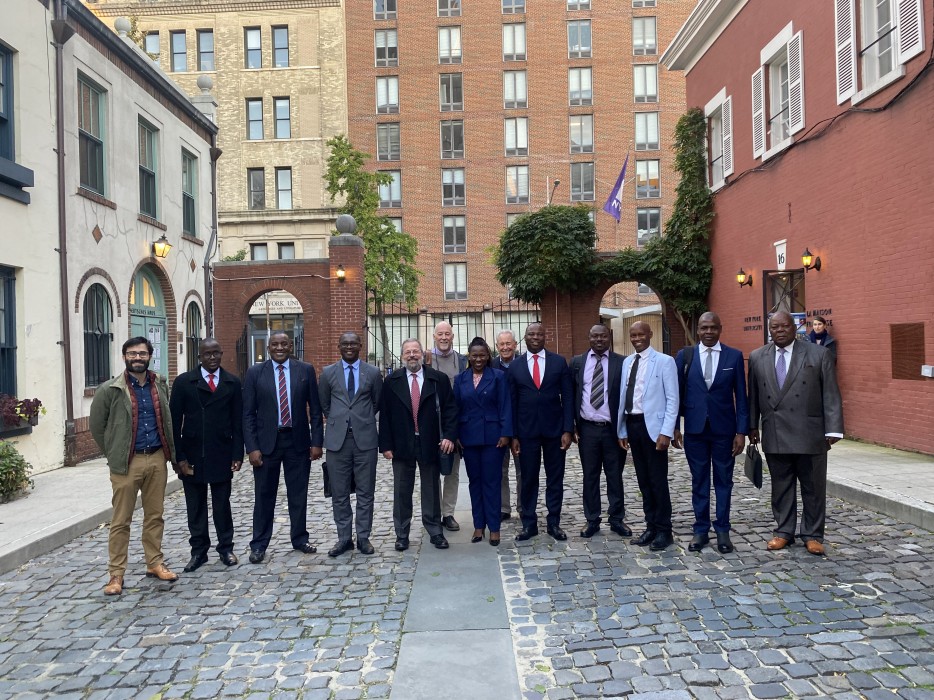Related

Oct 05,2023
Urban Expansion Program Releases
Accommodating Urban Growth Online Course

Event
/ Oct 29,2018

The Urban Expansion program, led by Professor Solly Angel, held a four-day workshop at NYU Africa House for nine senior land and planning officials from Malawi, including a principal secretary and several senior commissioners; the planning directors of Lilongwe, Blantyre, and Zomba; and the head chief of the rural councils in Lilongwe. The workshop, sponsored in part by the Chandler Foundation, aimed to form a lobbying group that can chart and implement a plan of action for orderly, green, affordable, and inclusive urban expansion and densification in Malawi.
Prior to the workshop, participants took the online course, “Accommodating Urban Growth,” recently developed by the Urban Expansion Program in collaboration with and with financial support from C40 Cities. The planning director for Blantyre remarked that “I went through the material twice. It all spoke directly and in practical terms to the problems we are facing here.” Workshop instructors, in addition to Marron staff, came from the World Resources Institute, Esri, the OECD, and the City University of New York.
The key innovation in the proposed urban-expansion plans for Malawian cities—beyond projecting the amount of land needed for expansion, identifying the expansion area to 2050, and designing an arterial infrastructure grid with wide roads spaced one kilometer apart—was that converting lands on the urban periphery to urban use would be the responsibility of rural councils, not of the municipality. No longer would land be converted to urban use by appropriating it and paying compensation; instead, the municipality will make the rules, declaring targeted areas as “designated urban expansion areas” and requiring that 30–50% of the land be dedicated for public use (roads, open spaces, and public facilities, with some for sale to finance the infrastructure), with the rest divided among the rural landowners as salable plots. Rural councils would lead subdivision plans for “designated areas,” and coalitions of rural landowners would develop the plans, with technical assistance.
The workshop reached a consensus (including the chief who said “we can do it”) that there is a pragmatic and realistic path to action that will reduce informality, create orderly and largely self-financing “green” expansion, and massively increase the affordable housing stock, while providing alternative income for farmers who lost their lands. Workshop participants drafted expansion plans for the three cities, identifying the areas of expansion by 2050, and designed arterial road grids in the expansion areas of cities. Participants agreed that they were now equipped with a set of practical tools that they could use, upon their return, to make a difference on the ground.
Please fill out the information below to receive our e-newsletter(s).
*Indicates required.